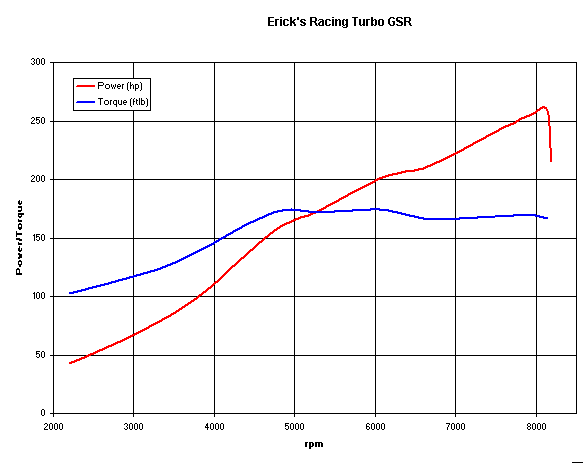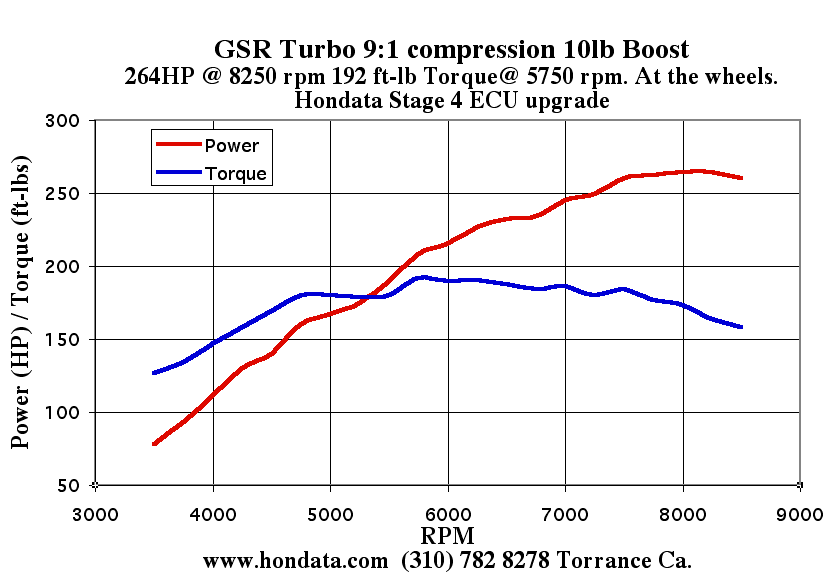ryanwolfe911
Senior Member
quit listening to all these retards babble about cfm this and that. Just try what you think will work and let the results speak for themselves. Everyone's a technician. lol 

We may earn a small commission from affiliate links and paid advertisements. Terms

Originally posted by Slammed89Integra@Mar 17 2003, 07:59 PM
:sleep: I have no clue what snail said but it seems that he knows his shit, or he can bs his way through everything. Umm yeah, just do what seems like would be streetable in a stock gsr and use that. Off topic, the aftercooled vortech supercharger put down around 270 hp to the wheels in a stock si motor.
Originally posted by heterosapian@Mar 17 2003, 06:11 PM
Ractive, Ive seen a guy put down 280whp with a gsr on 13?psi with just DSM injectors ( heres the install page, not the dyno, http://www.homemadeturbo.com/tech_projects...tors/index.html ) and an safc for fuel control, just make sure you cool the shit out of everything. The profec B is bar none the best boost controler ive come across in my experience with dsms.
Snail, psi does not dictate the volume of air. Please, understand this. Half of your posts have been arguing against physics. Sol's bicycle tire example was perfect. More pressure means more heat, not more air. Go ask Boyle.
Yes, you can compress a given amount of air into a smaller space. No, you cannot create matter. The number of air molecules you start with before compression is not going to increase. Sol's point, and mine, is that a larger turbo pulls in more air to begin with, therefore pushing more air after compression than a smaller turbo. The reason a given turbo will move more cfms at higher psi is because it has bigger/steeper/clipped/taller fins to compress all that air, and a bigger compressor housing to move it all through, not simply because more psi = more cfm. And Sol, Id be well impressed to see 400 hp at 10psi only because its hard to believe that a gsr, even one at almost 2liters, can move enough exhaust to get the turbine spooling on a turbo that can produce that many cfms at 10psi
Ractive, Ive seen a guy put down 280whp with a gsr on 13?psi with just DSM injectors ( heres the install page, not the dyno, http://www.homemadeturbo.com/tech_projects...tors/index.html ) and an safc for fuel control, just make sure you cool the shit out of everything. The profec B is bar none the best boost controler ive come across in my experience with dsms.
Snail, psi does not dictate the volume of air. Please, understand this. Half of your posts have been arguing against physics. Sol's bicycle tire example was perfect. More pressure means more heat, not more air.
Originally posted by SnailOnARampage@Mar 17 2003, 05:05 PM
The thing with turbos is, they do not actually cause the engine to accept more cf/m. They just pump in air at the same rate...600 cf/m for example, but that air is compressed so that it is more dense, therefore yielding more oxygen to burn.


Originally posted by Ractive78@Mar 17 2003, 09:50 PM
So I should go with a t88? or t66?
Originally posted by Ractive78@Mar 17 2003, 10:01 PM
And what tranny should I use, I would like cable but would do hydro. ITR(hydro of course), GSR, LS, or B16?
Id prefer cable because I have a 1991 Integra rs
Originally posted by SnailOnARampage@Mar 17 2003, 10:50 PM
This is more evidence to the *phenomenon* that, all other things being equal, 10 psi at the map sensor will only increase torque by 70 percent MAXIMUM[/quote
Originally posted by ryanwolfe911@Mar 17 2003, 09:57 PM
quit listening to all these retards babble about cfm this and that. Just try what you think will work and let the results speak for themselves. Everyone's a technician. lol
Snail, psi does not dictate the volume of air.
More pressure means more heat, not more air.
Go ask Boyle.

Yes, you can compress a given amount of air into a smaller space.
No, you cannot create matter. The number of air molecules you start with before compression is not going to increase.
Sol's point, and mine, is that a larger turbo pulls in more air to begin with, therefore pushing more air after compression than a smaller turbo. The reason a given turbo will move more cfms at higher psi is because it has bigger/steeper/clipped/taller fins to compress all that air, and a bigger compressor housing to move it all through, not simply because more psi = more cfm.

And Sol, Id be well impressed to see 400 hp at 10psi only because its hard to believe that a gsr, even one at almost 2liters, can move enough exhaust to get the turbine spooling on a turbo that can produce that many cfms at 10psi

who the fuck is boyle???
. Theres no way of getting around it. Yes, we cool the cherge temp considerably before allowing it into out combustion chamber, but the fact remains that temp will always increase with an increase in pressure.that's the physics part-
everything that happens BEFORE the compression process isn't even involved, as its not part of the pressureized charge pipe yet.
I have only posted that, if you have 2 bodies of air, one being under pressure (10 psi or whatever the fuck you want) provided the temperature is the same, the one under pressure is going to be more dense, and will yield more O2.
at a given temperature, at twice the air pressure, there will be twice as many oxygen molecules, hence twice as much torque
all of those ideas are based on my *assumption* that the relationship between actual number of oxygen molecules and air pressure is linear, which I have no clue either way, it just makes sense to me that it would be linear.



